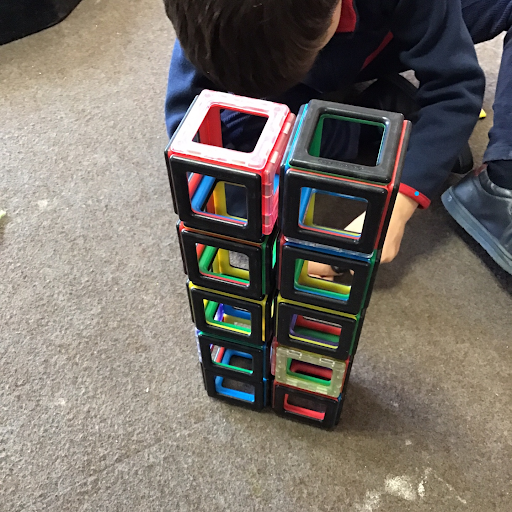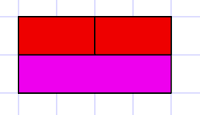I've been reading Alf Coles and Nathalie Sinclair's I Can't Do Maths! Why children say this and how to make a difference. It takes five ideas about teaching maths that they've identified as myths, and explains how the myth works, and what might be done about it.
I'd already seen Alf Cole's TEDx video about the first myth, that mathematics is a building block subject, where we build more complex ideas on top of simple ideas.
The situation of learning a language by being immersed in a complex whole is of course a really powerful instance of children learning within complexity. My English as an additional language learners learn - fast - by being immersed in the life of the class. They somehow pull out of the messy whole all the grammar and vocab that they need.
As Alf Coles says, Caleb Gattegno calls this using the 'powers of their minds', and asks why we can't make complex demands on those powers in teaching maths.
Alf Coles suggests that if you're not succeeding in mathematics class, instead of needing something simpler, perhaps you need something more complex.
This is the subject of the first chapter of the book: Myth A: Maths is a Building Block Subject.
'The idea that in order to learn something, you need to start with the simplest ideas and slowly build upwards - constructing one block at a time - seems to be common sense. The primary maths curriculum in schools in most countries in the West is designed with the tree idea in mind.'
But...
'...what if our image of learning and mathematics were more like a mangrove forest than a single structure or tree? Mangroves grow as a decentralised network, each part dependent on other parts, growing upward and downward and sideways too. If there is a problem, no need to go back to the starting point; no need to find the trunk or the ground floor, since there is no one thing upon which everything else depends.'

This does really seem to go against the usual assumptions about mathematics learning.
And yet I do see it in operation in my students.
In our learning in Early Years of course, where it is children's play that leads the way, we often see the mathematics embedded in something else - maybe in building a house together. Or some other kind of arranging with blocks. Or pretending to run a shop. Or making a pattern of squares. They present their learning to themselves not in the most simplified form but in a complex context in which much of the learning is hidden from easy observation.
Often the complex task is more satisfying than the simpler one - perhaps in some sense it is more efficient, though it looks much less orderly and logical to us.
Take that thing of arranging squares. Today I saw this.

I've written a lot about using Cuisenaire rods (example). The authors too see the power of looking at arithmetic algebraically rather than numerically, and in their chapter on practicalities they go into detail on this. How powerful it is to see that two things are equal so vividly, and to have an easy way of saying it. Two reds are equal to one pink. 2r=p. Five and six year olds can get a really solid understanding of what equality means. And multiplication becomes counting. Two reds. Just like two apples. This can be a very different route from the counting and number-dependent route children usually follow.



No comments:
Post a Comment